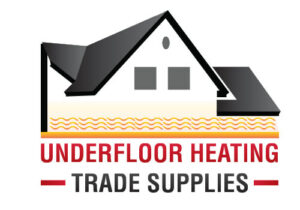Does underfloor heating add value to your home? Find out now.
Installing underfloor heating (UFH) is increasingly seen as a smart investment for homeowners looking to increase their property’s value. In this article, we will delve into how underfloor heating can add property to a home, with factors considered such as cost, efficiency, comfort and more. We will mainly be covering established homes here, but you can learn more about underfloor heating and new builds in our blog too.
Remember, however, that if underfloor heating hasn’t already been installed in your home, retrofitting underfloor heating can be a tricky operation. Instead, you should hire a professional.
Be sure to contact us and book a consultation to see how our UFH systems can aid the value of your property.
How Does Underfloor Heating Increase Property Value?
One of the main reasons underfloor heating is so popular is because of how it can boost property value. After all, it is a long term investment that, despite high initial costs, will last in the long run, and rarely needs in-depth maintenance. Here are nine factors that contribute towards the overall discussion regarding underfloor heating increasing property value:
1. Luxury Appeal

Unlike other central heating systems such as radiators, underfloor heating emits heat from under the flooring, allowing heat to rise and gradually warm the room at a quicker pace when compared to wall heaters, for example.
This high-end feature is often associated with premium properties and can significantly influence a buyer’s perception. The comfort and consistent warmth provided by UFH aids both the living experience of the occupants as well as the sophistication and attention to detail in home finishes.
This perception of increased quality can translate directly into a higher market value, as potential buyers are often willing to pay a premium for properties that offer better comfort and luxury.
2. Space Saving
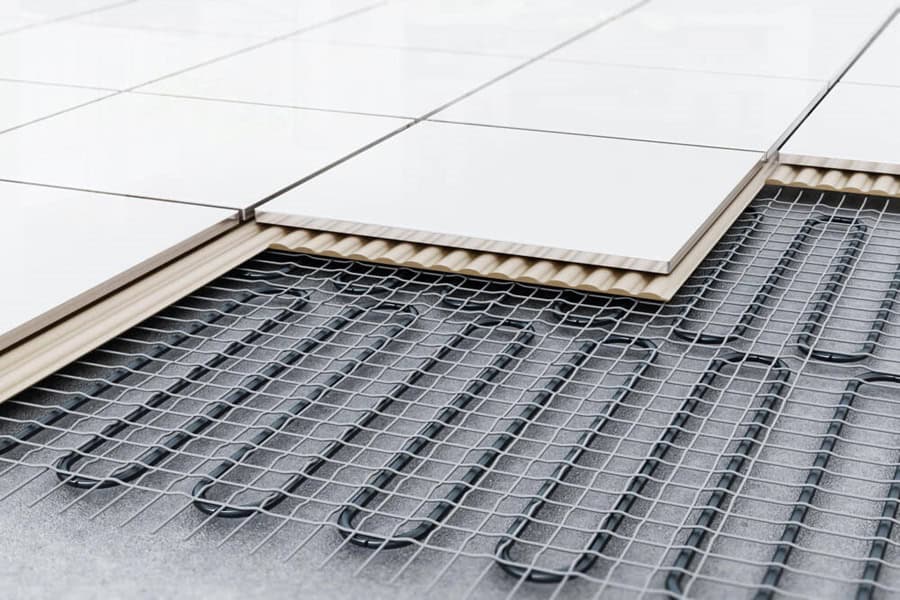
Another appealing aspect of underfloor heating is its ability to save space since they are hidden under the flooring.
Traditional radiators take up valuable wall space and can restrict furniture placement. With UFH, the entire floor area becomes a subtle and effective heat emitter, freeing up wall space and allowing for greater flexibility in interior design and furniture arrangement.
This added functionality is especially attractive to buyers looking for a clean, uncluttered aesthetic in their living spaces, thereby potentially increasing the property’s value.
3. Energy Efficiency
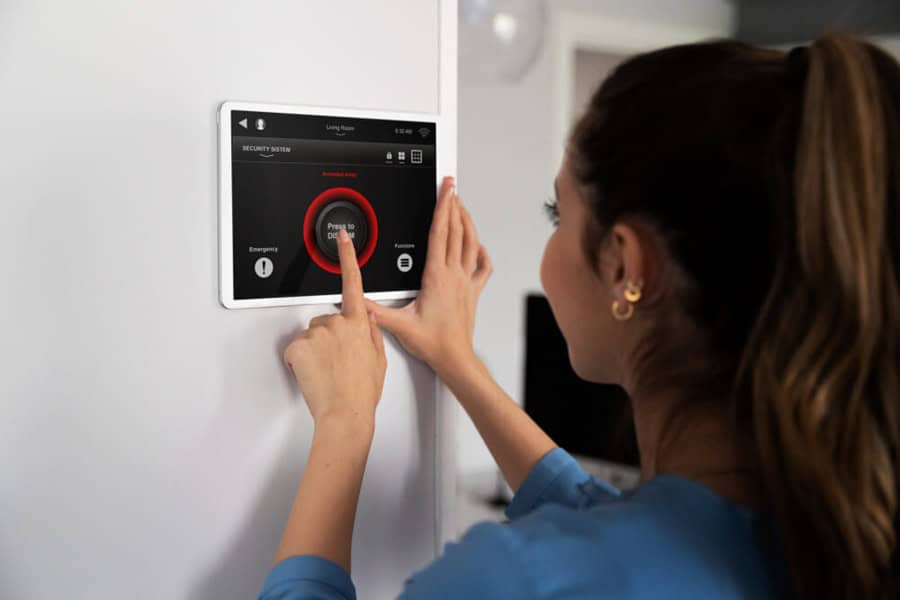
Does underfloor heating add value through energy savings?
Absolutely. UFH systems operate at lower temperatures than conventional radiators—typically around 29 degrees Celsius compared to 65-75 degrees Celsius. This lower temperature requirement means UFH uses energy more efficiently, which can significantly reduce heating bills. Additionally, the even distribution of heat across the entire floor surface eliminates cold spots, especially when using underfloor heating spreader plates, further enhancing energy efficiency and comfort.
Homes with UFH often feature better insulation to maximise the efficiency of the system, which also contributes to a higher Energy Performance Certificate (EPC) rating. A better EPC rating not only improves the marketability of the property but also makes it more desirable due to lower running costs.
4. Health Benefits

Underfloor heating offers benefits beyond warmth and energy efficiency.
It promotes a healthier living environment, especially beneficial in homes with hardwood or tiled floors. UFH reduces the circulation of heat and asthma, useful for those concerned about dust and allergens, when compared to conventional radiators, which can distribute dust as they heat.
This feature is particularly appealing to buyers with allergy concerns, those seeking a cleaner living environment, or those that are worried about heat loss in homes.
5. Choosing The Right Flooring

Does underfloor heating add value through its interaction with certain floor types?
Yes. The type of flooring is crucial on how well your underfloor heating systems will perform. Materials like hardwood and polished concrete are ideal as they conduct heat effectively, ensuring that warmth is evenly and efficiently distributed throughout the room.
This not only maximises the energy efficiency of the heating system but also contributes to the overall luxurious finish of the property. Read through each of our guides below that focus specifically on flooring with underfloor heating and choose which option is right for you:
- Underfloor heating on timber floors
- Underfloor heating on concrete floors
- Vinyl flooring with underfloor heating
- Under tile underfloor heating for tiled flooring
6. Low Maintenance
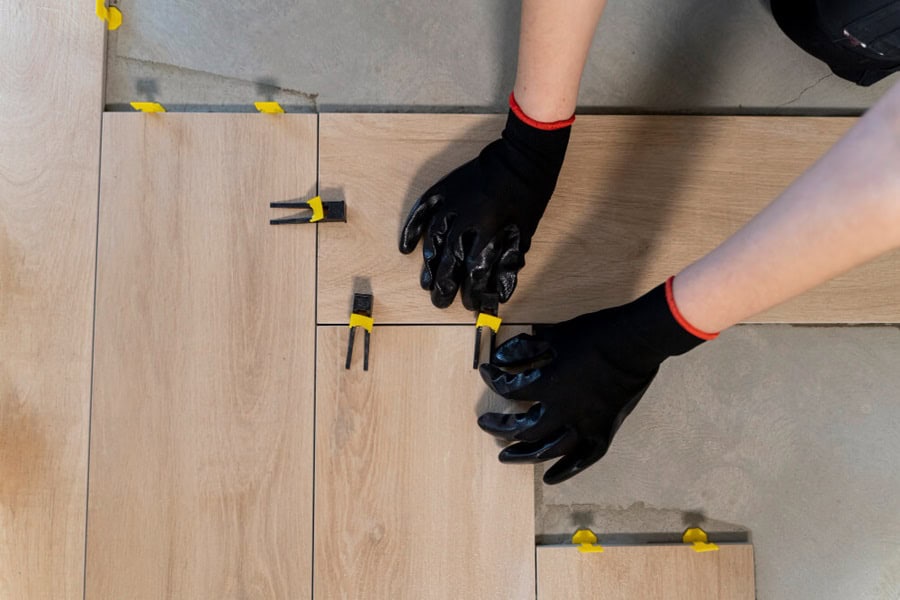
The simplicity of maintaining an underfloor heating system is a key factor in its value proposition. Once installed, there’s little to no maintenance required, (aside from perhaps knowing how to turn off underfloor heating in the summer) with most systems running efficiently without the need for regular adjustments.
The heating settings can be easily controlled and customised through thermostats for underfloor heating, often with zoning capabilities (such as multi zone heating) that allow for room-by-room temperature adjustments. This ease of use and reduced need for future maintenance work make underfloor heating an attractive feature for buyers looking for a “move-in ready” home.
7. Compatibility with Various Energy Sources
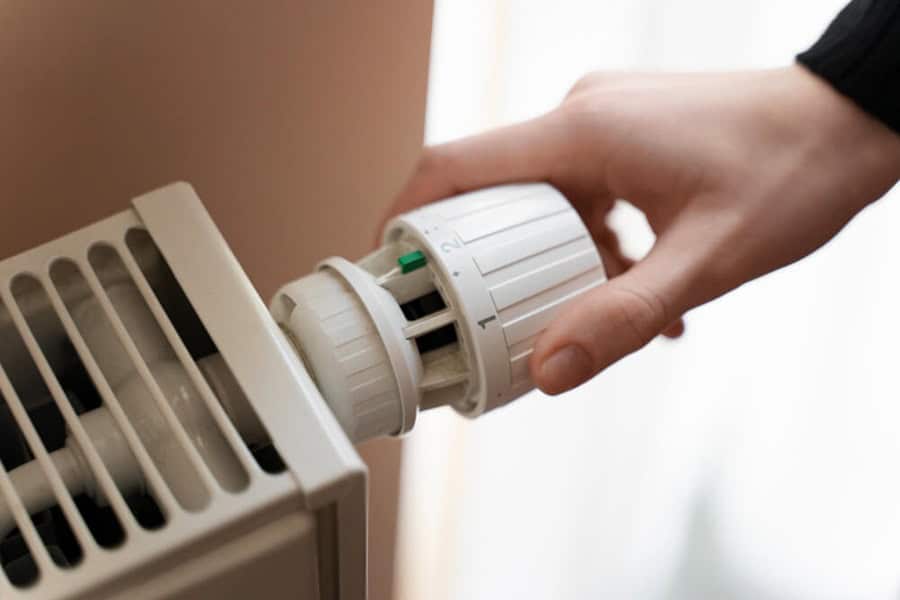
Underfloor heating systems are versatile in their energy source compatibility, including options like air source and ground source heat pumps. This flexibility allows homeowners to choose eco-friendly energy solutions, aligning with increasing consumer preferences for sustainable living.
By facilitating the use of renewable energy sources, underfloor heating not only ensures efficient heating but also future-proofs the property, potentially increasing its value in an environmentally conscious market.
View the following guides to see how you can merge underfloor heating with renewable sources:
8. Comfort in Every Step
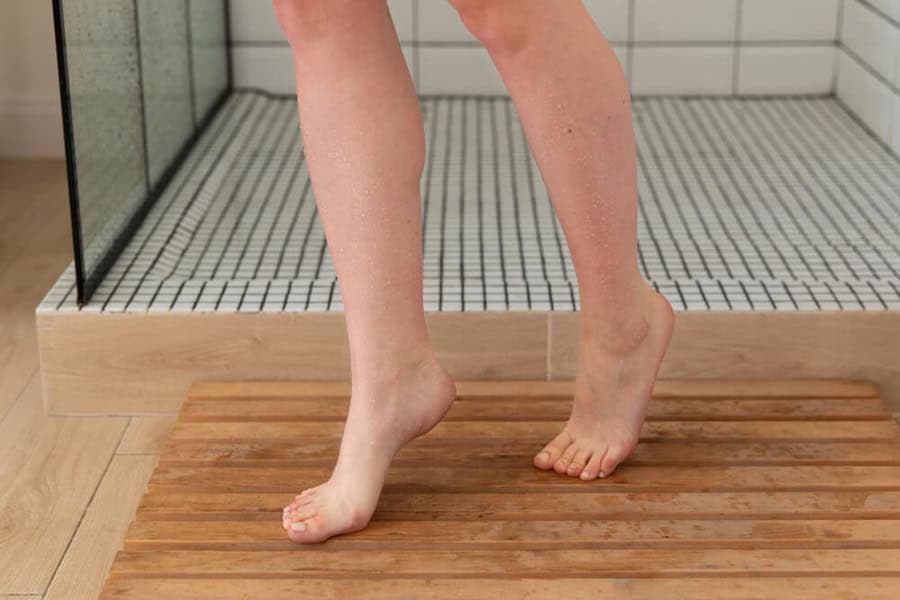
Sometimes the value of a property does not just come down to the upkeep, quality and age of the house, but also with the human experience. After all, who doesn’t appreciate the comfort of a warm floor underfoot during the chilly mornings? Underfloor heating (UFH) adds an undeniable allure to key areas of your home, such as bathrooms and kitchens.
This luxury not only improves your daily comfort but also makes these spaces more appealing to potential buyers. The simple pleasure of stepping onto a heated floor in the bathroom or kitchen can be a decisive factor for property buyers. This feature alone can make your property stand out in the market, potentially increasing its value.
9. Ideal for Families and Pets

Electric or Water underfloor heating is particularly beneficial in homes with young children and pets. Traditional heating solutions can pose risks with hot surfaces, but with UFH, the heat is evenly distributed and safely tucked away beneath the floor, offering a safer environment for kids and pets who love to play on the floor.
This safety feature not only provides peace of mind for homeowners but also appeals to potential buyers with families, thereby broadening the property’s marketability and resale value.
So, Does Underfloor Heating Add Value To Contemporary Homes?

In conclusion, underfloor heating adds considerable value to a property through its compatibility with the right flooring types, as well as contributing to a healthier living environment, low maintenance requirements, and adaptability to various energy sources. Each of these factors plays a crucial role in improving the desirability and market value of a home equipped with underfloor heating.
For other ways of checking the value of your property, try this house value calculator.
FAQs
How does underfloor heating impact home insurance?
Installing underfloor heating may have implications for your home insurance. Some insurance providers may require you to notify them of the installation as it is considered a significant home improvement. While it typically does not increase premiums, it is important to check with your insurance provider to ensure that the new system is covered and to avoid any issues in case of future claims.
What should be considered before retrofitting underfloor heating in an existing home?
Retrofitting underfloor heating in an existing home requires careful planning. Considerations include the height of the floors (as underfloor heating can raise the floor level), the type of flooring currently in place, and the existing insulation. Additionally, it may be necessary to upgrade the home’s insulation to maximise the efficiency of the heating system. Consulting with a professional installer can help address these considerations and ensure a smooth retrofit process.
Sources
GOV.UK. (2021) Find An Energy Certificate. [online] Available at: https://www.gov.uk/find-energy-certificate [accessed 16/05/24]
L & C Mortgages. (2024) House value calculator – how much is my house worth? [online] Available at: https://www.landc.co.uk/calculators/house-price-calculator [accessed 16/05/24]
